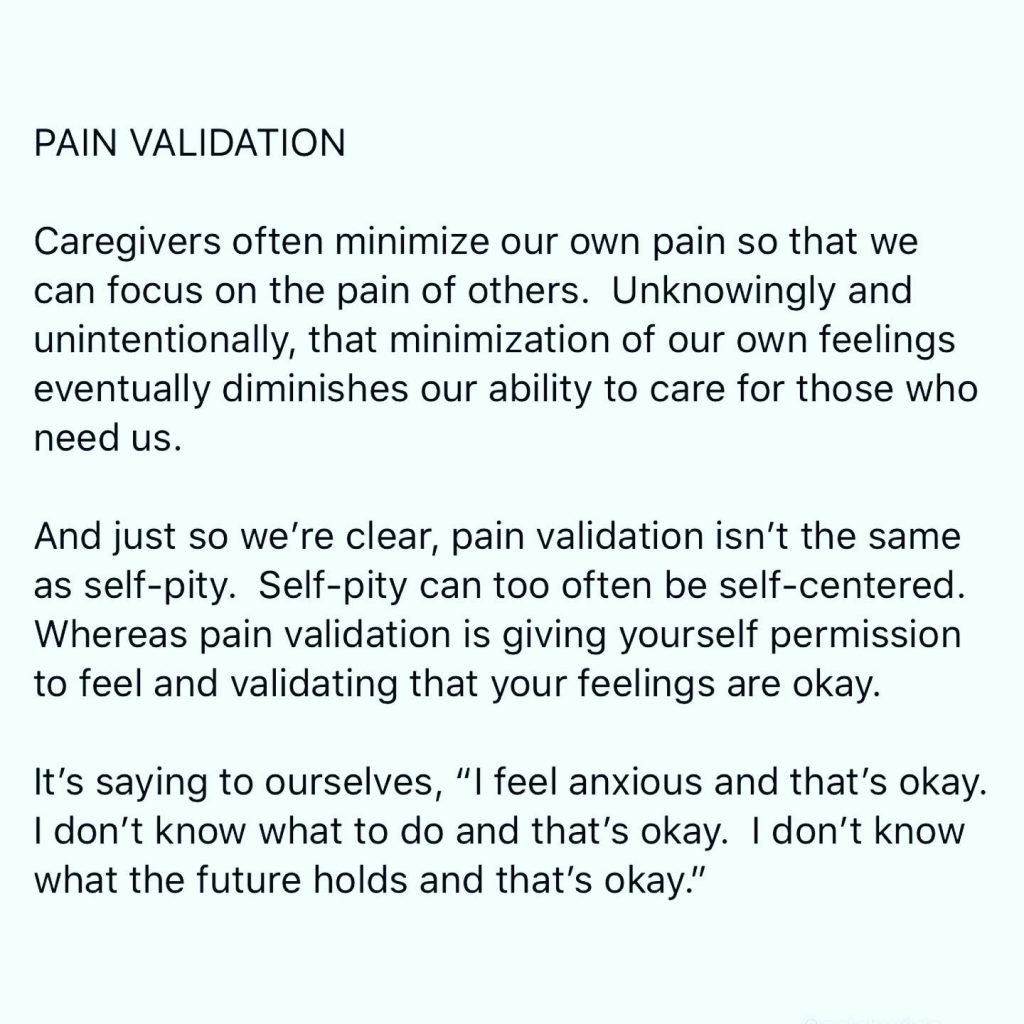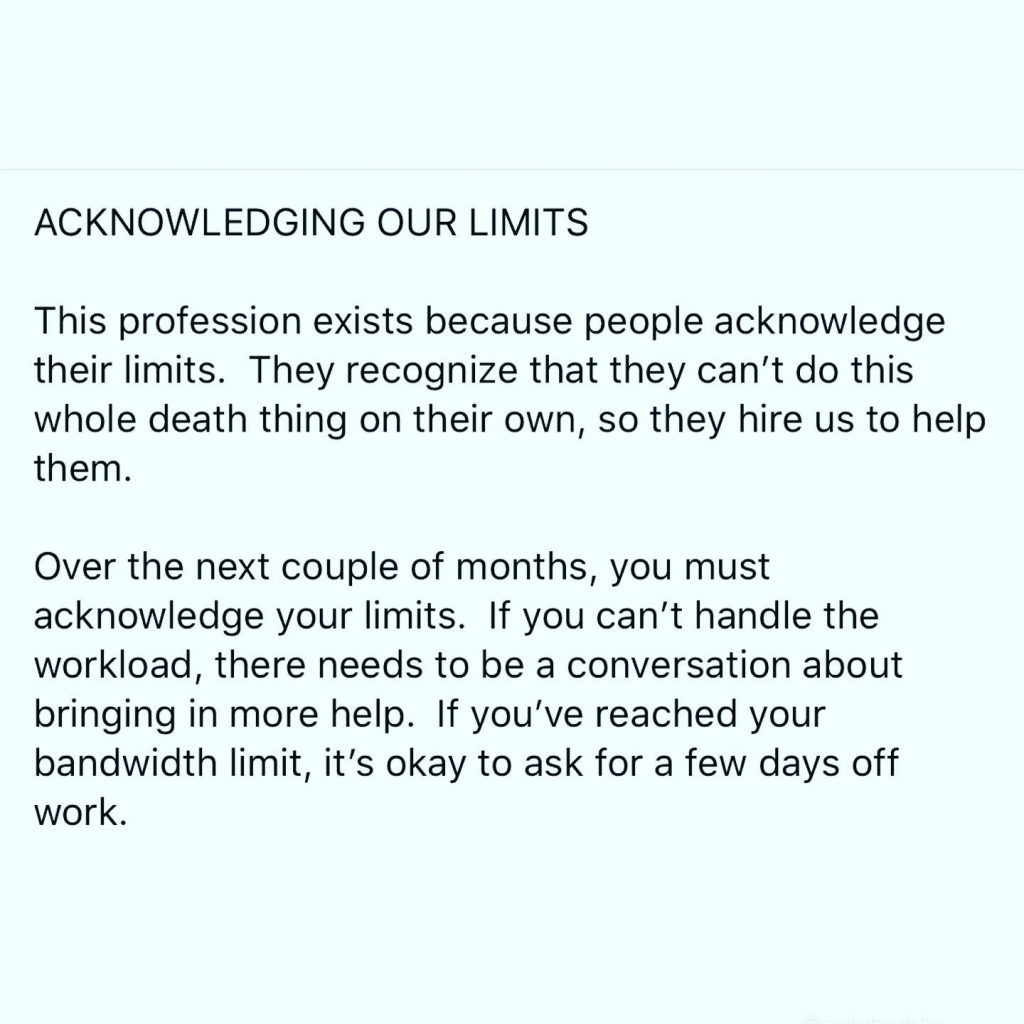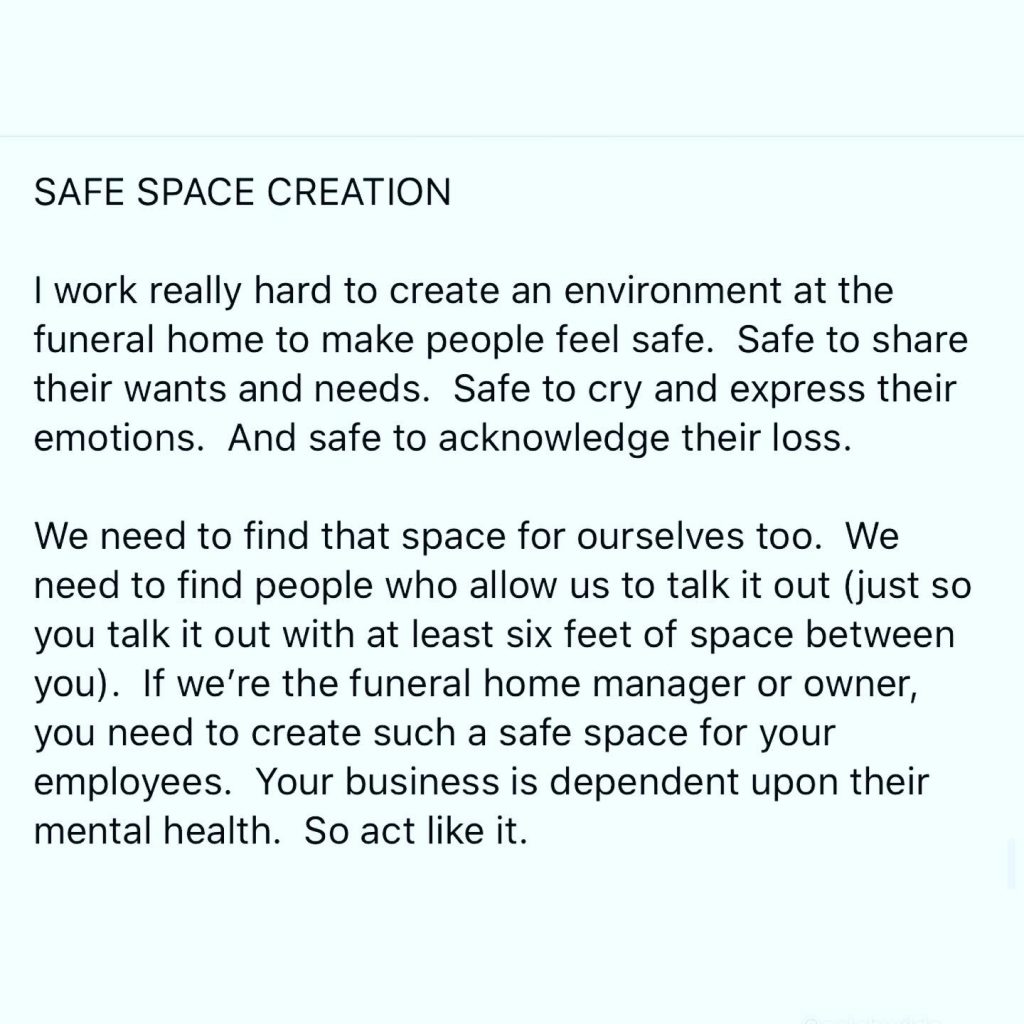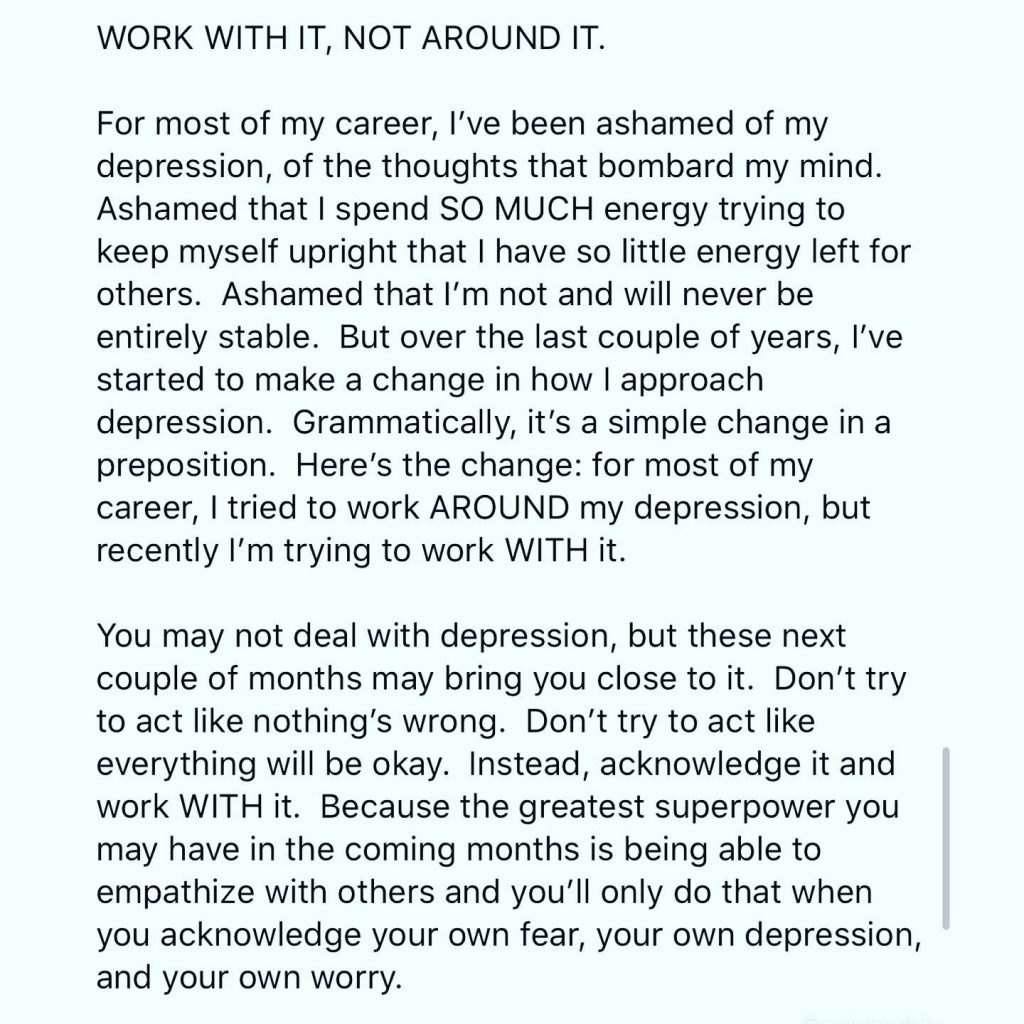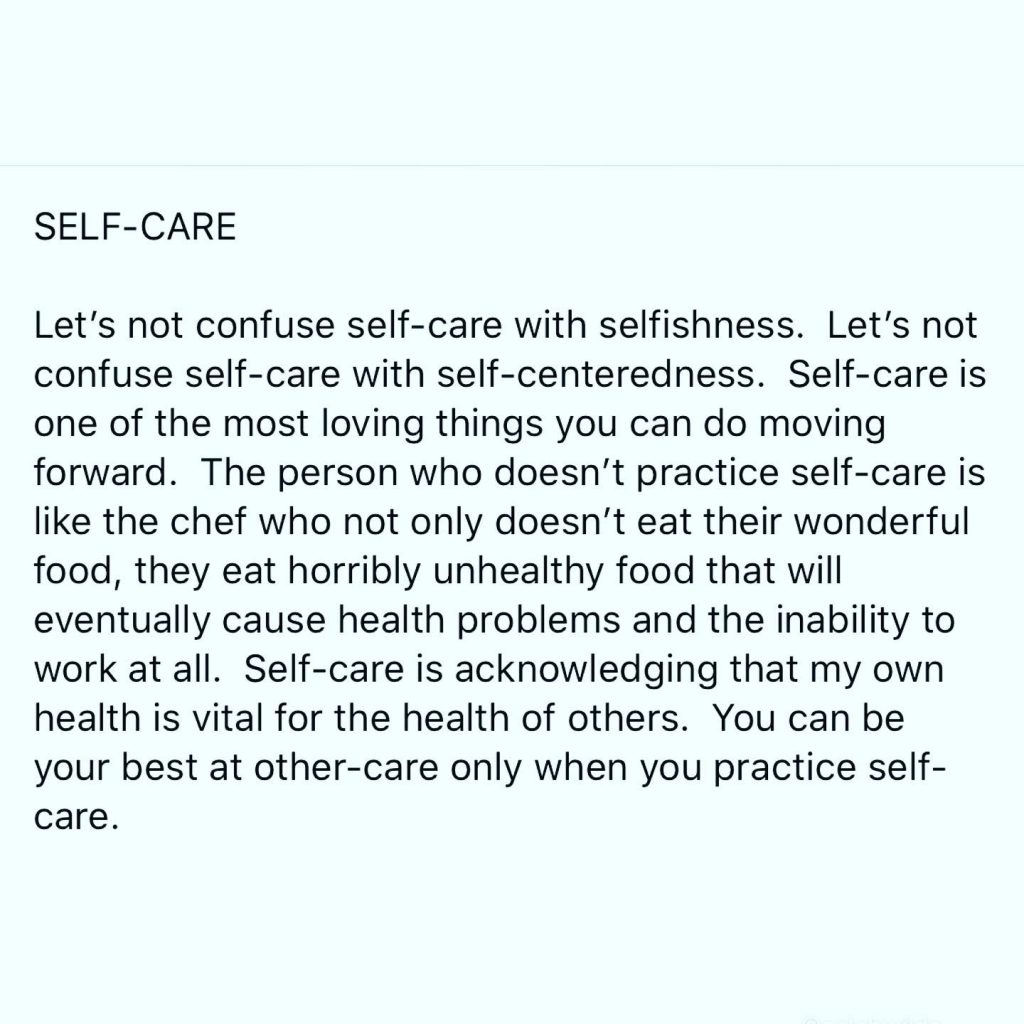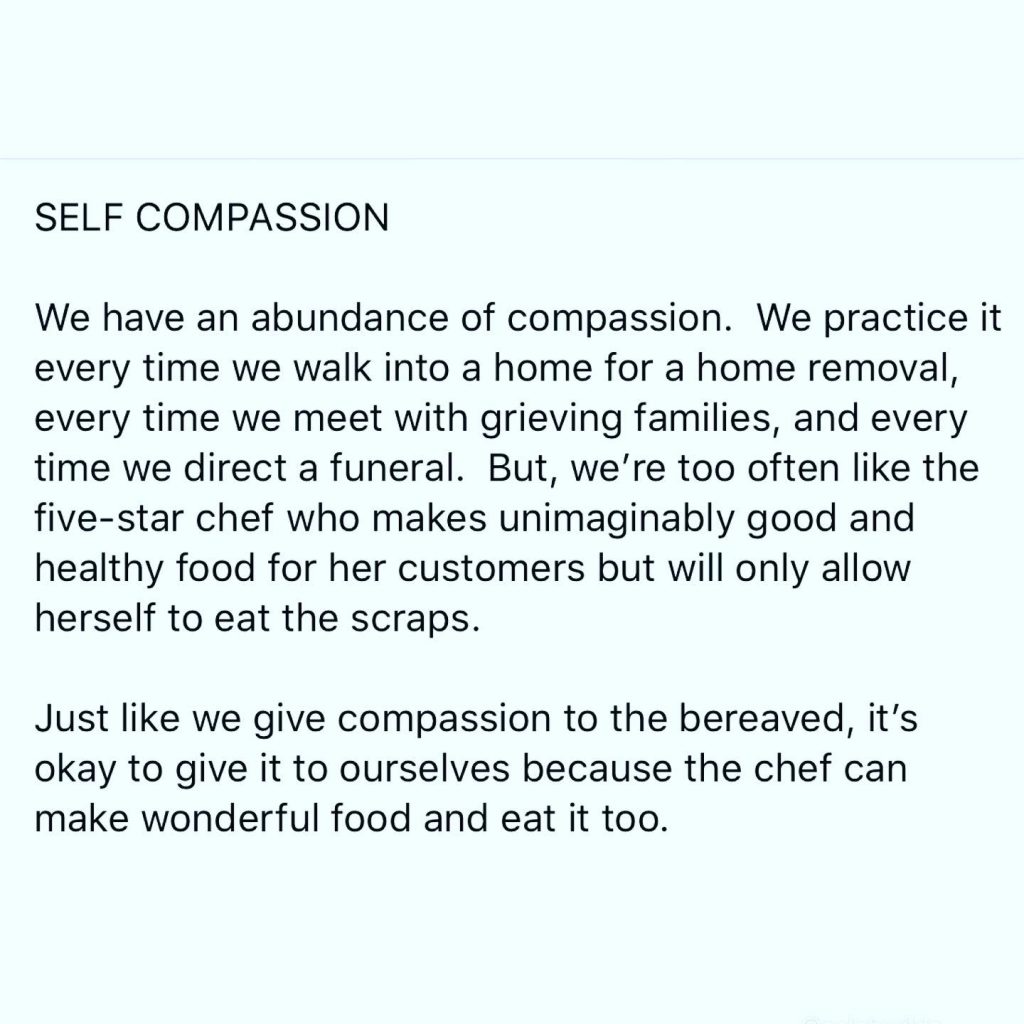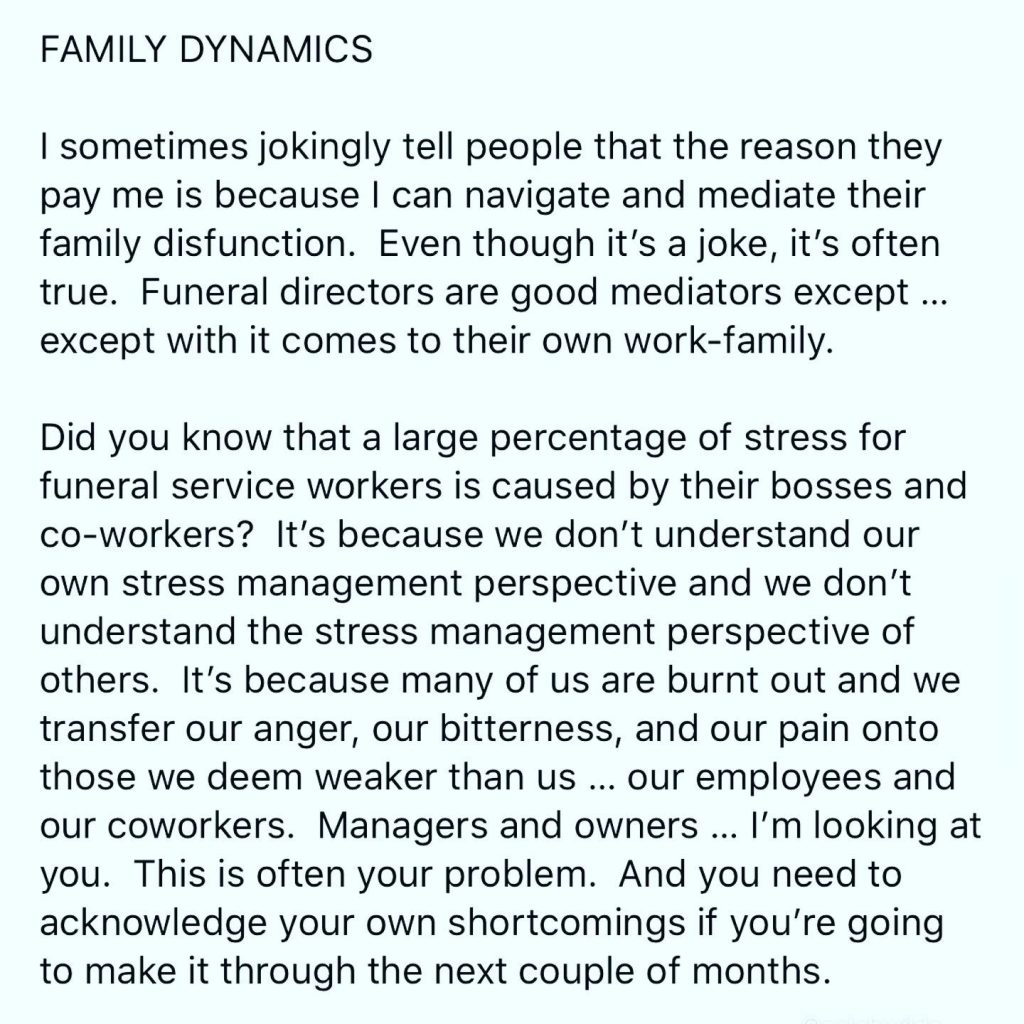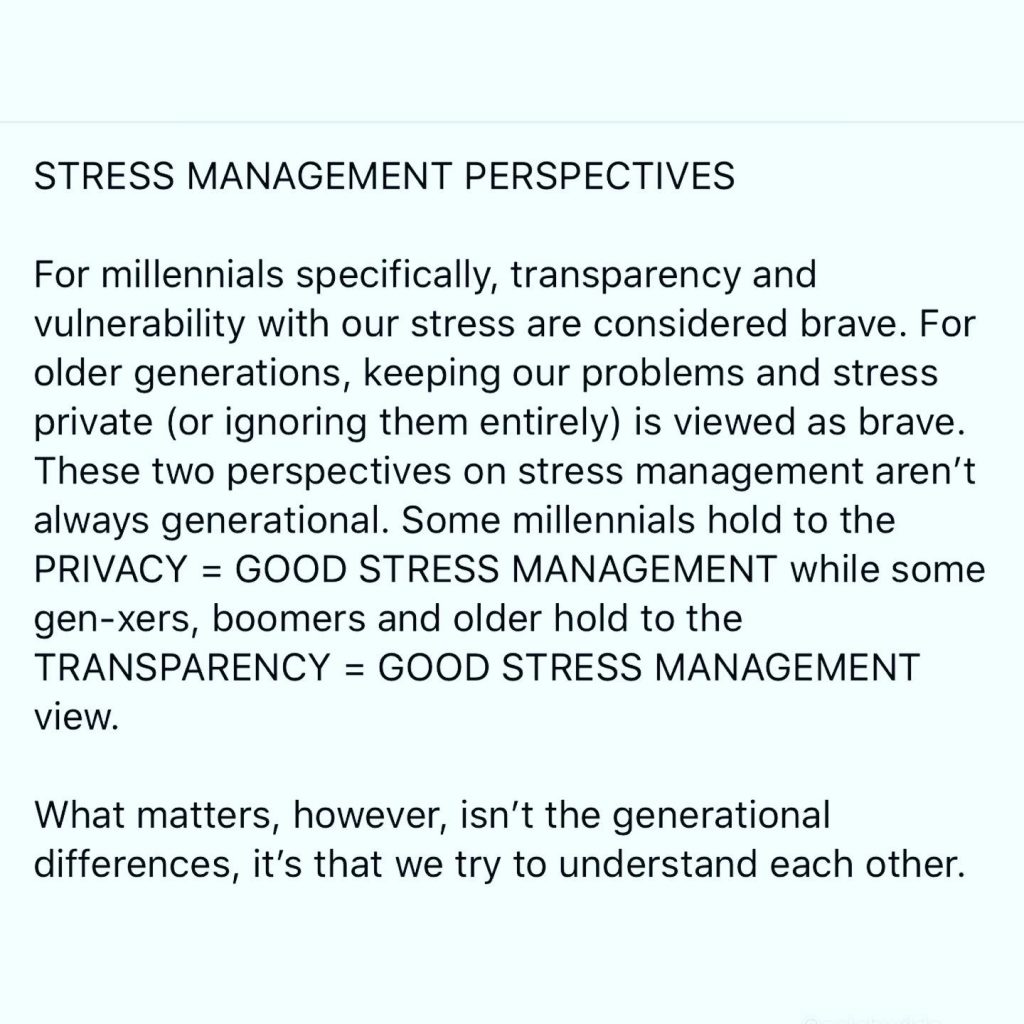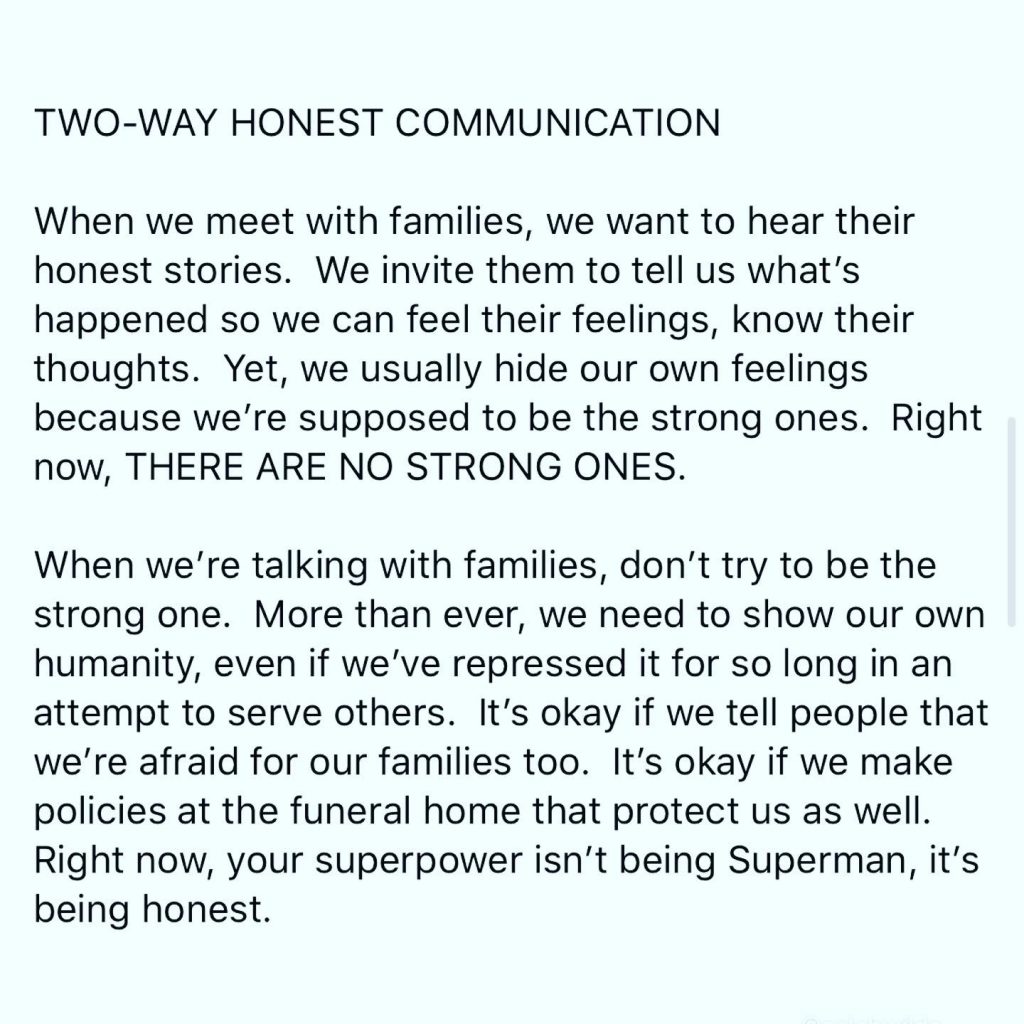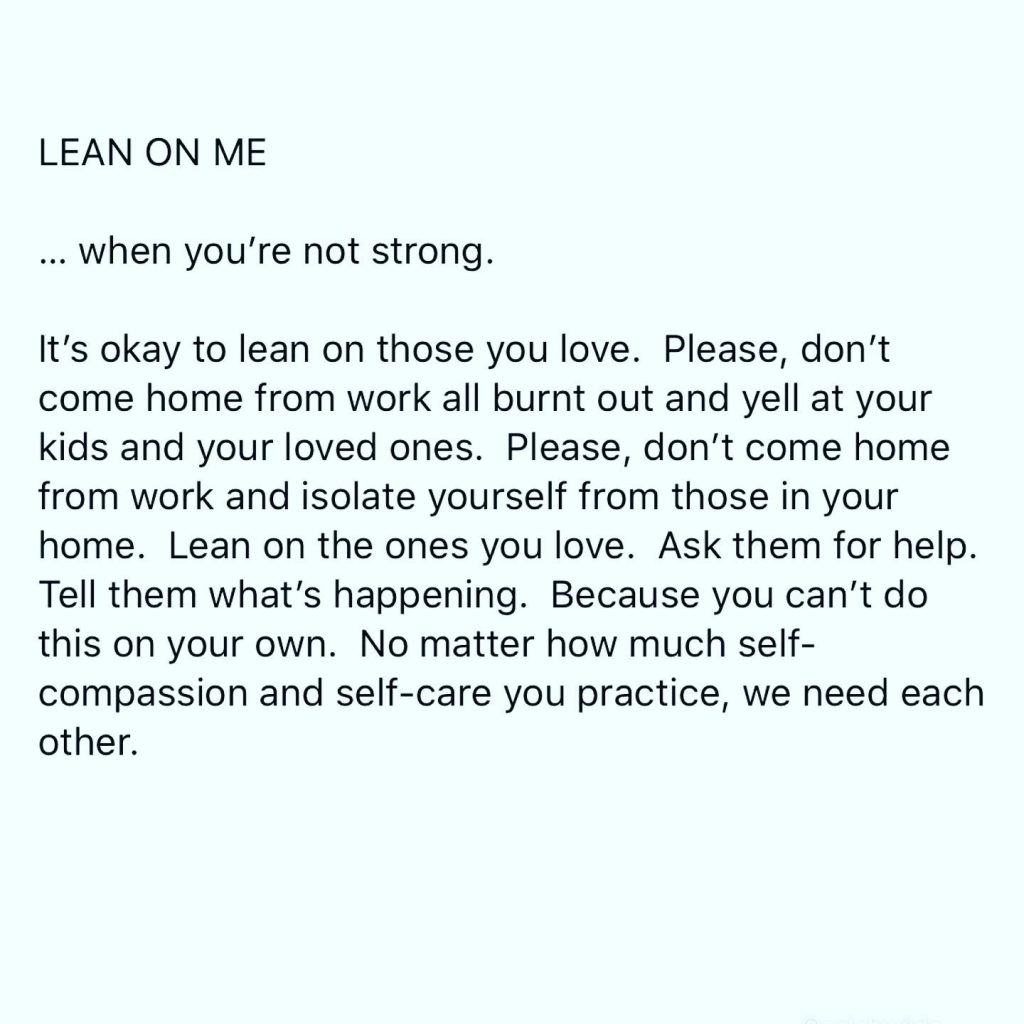10 SUPERPOWERS FUNERAL DIRECTORS (and caretakers/service personnel) NEED RIGHT NOW
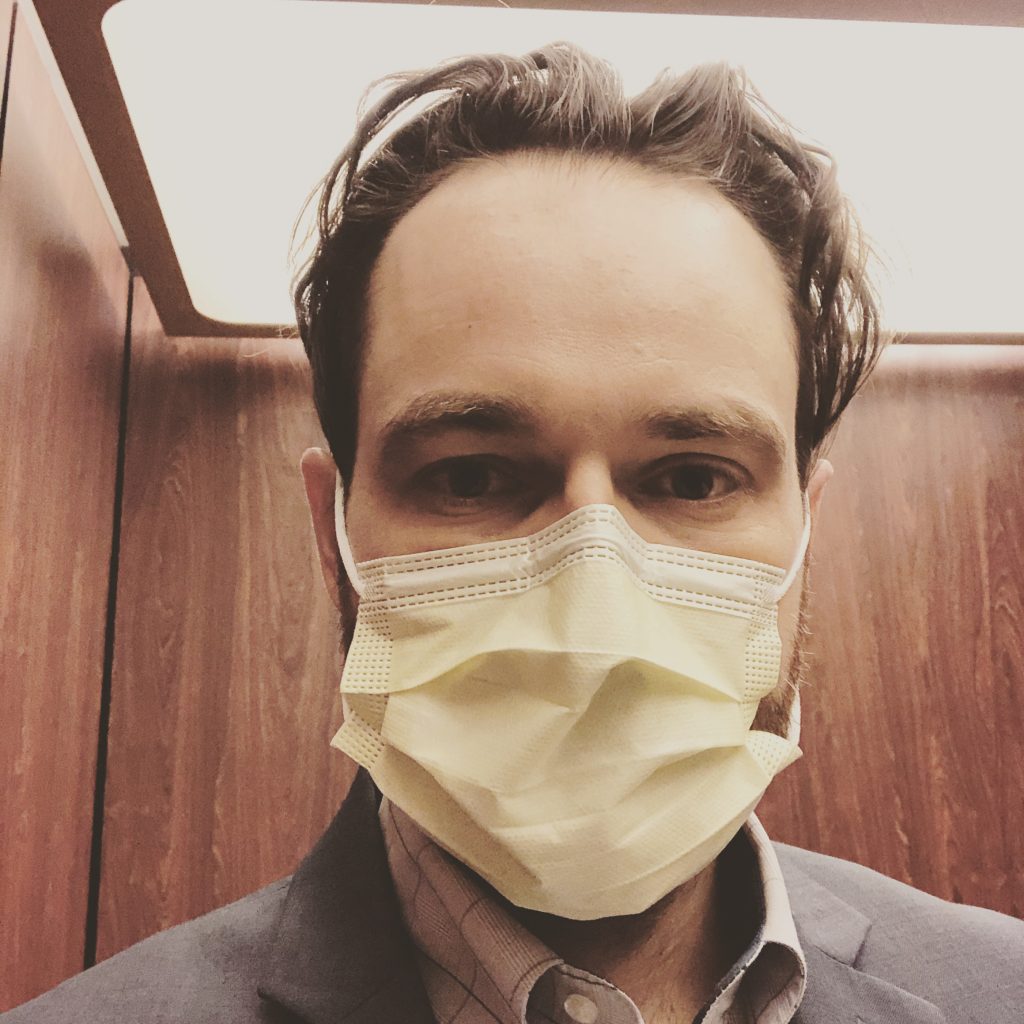
If you’re in death care (or any type of caretaker position, paid or unpaid), you probably already have these superpowers. In fact, most of us only know how to use our superpowers for others, but we hardly ever use them for ourselves. As we all face this pandemic and the unknowns that come with it, we’ll have to focus our superpowers outwardly towards others AND inwardly towards ourselves. Otherwise, we’ll burn out. Or worse.
SELF COMPASSION
We have an abundance of compassion. We practice it every time we walk into a home for a home removal, every time we meet with grieving families, and every time we direct a funeral. But, we’re too often like the five-star chef who makes unimaginably good and healthy food for her customers but will only allow herself to eat the scraps.
Just like we give compassion to the bereaved, it’s okay to give it to ourselves because the chef can make wonderful food and eat it too.
PAIN VALIDATION
Caregivers often minimize our own pain so that we can focus on the pain of others. Unknowingly and unintentionally, that minimization of our own feelings eventually diminishes our ability to care for those who need us.
And just so we’re clear, pain validation isn’t the same as self-pity. Self-pity can too often be self-centered. Whereas pain validation is giving yourself permission to feel and validating that your feelings are okay.
It’s saying to ourselves, “I feel anxious and that’s okay. I don’t know what to do and that’s okay. I don’t know what the future holds and that’s okay.”
TWO-WAY HONEST COMMUNICATION
When we meet with families, we want to hear their honest stories. We invite them to tell us what’s happened so we can feel their feelings, know their thoughts. Yet, we usually hide our own feelings because we’re supposed to be the strong ones. Right now, THERE ARE NO STRONG ONES.
When we’re talking with families, don’t try to be the strong one. More than ever, we need to show our own humanity, even if we’ve repressed it for so long in an attempt to serve others. It’s okay if we tell people that we’re afraid for our families too. It’s okay if we make policies at the funeral home that protect us as well. Right now, your superpower isn’t being Superman, it’s being honest.
STRESS MANAGEMENT PERSPECTIVES
For millennials specifically, transparency and vulnerability with our stress are considered brave. For older generations, keeping our problems and stress private (or ignoring them entirely) is viewed as brave. These two perspectives on stress management aren’t always generational. Some millennials hold to the PRIVACY = GOOD STRESS MANAGEMENT while some gen-xers, boomers and older hold to the TRANSPARENCY = GOOD STRESS MANAGEMENT view.
What matters, however, isn’t the generational differences, it’s that we try to understand each other.
FAMILY DYNAMICS
I sometimes jokingly tell people that the reason they pay me is because I can navigate and mediate their family disfunction. Even though it’s a joke, it’s often true. Funeral directors are good mediators except … except with it comes to their own work-family.
Did you know that a large percentage of stress for funeral service workers is caused by their bosses and co-workers? It’s because we don’t understand our own stress management perspective and we don’t understand the stress management perspective of others. It’s because many of us are burnt out and we transfer our anger, our bitterness, and our pain onto those we deem weaker than us … our employees and our coworkers. Managers and owners … I’m looking at you. This is often your problem. And you need to acknowledge your own shortcomings if you’re going to make it through the next couple of months.
SAFE SPACE CREATION
I work really hard to create an environment at the funeral home to make people feel safe. Safe to share their wants and needs. Safe to cry and express their emotions. And safe to acknowledge their loss.
We need to find that space for ourselves too. We need to find people who allow us to talk it out (just so you talk it out with at least six feet of space between you). If we’re the funeral home manager or owner, you need to create such a safe space for your employees. Your business is dependent upon their mental health. So act like it.
ACKNOWLEDGING OUR LIMITS
This profession exists because people acknowledge their limits. They recognize that they can’t do this whole death thing on their own, so they hire us to help them.
Over the next couple of months, you must acknowledge your limits. If you can’t handle the workload, there needs to be a conversation about bringing in more help. If you’ve reached your bandwidth limit, it’s okay to ask for a few days off work.
WORK WITH IT, NOT AROUND IT.
For most of my career, I’ve been ashamed of my depression, of the thoughts that bombard my mind. Ashamed that I spend SO MUCH energy trying to keep myself upright that I have so little energy left for others. Ashamed that I’m not and will never be entirely stable. But over the last couple of years, I’ve started to make a change in how I approach depression. Grammatically, it’s a simple change in a preposition. Here’s the change: for most of my career, I tried to work AROUND my depression, but recently I’m trying to work WITH it.
You may not deal with depression, but these next couple of months may bring you close to it. Don’t try to act like nothing’s wrong. Don’t try to act like everything will be okay. Instead, acknowledge it and work WITH it. Because the greatest superpower you may have in the coming months is being able to empathize with others and you’ll only do that when you acknowledge your own fear, your own depression, and your own worry.
SELF-CARE
Let’s not confuse self-care with selfishness. Let’s not confuse self-care with self-centeredness. Self-care is one of the most loving things you can do moving forward. The person who doesn’t practice self-care is like the chef who not only doesn’t eat their wonderful food, they eat horribly unhealthy food that will eventually cause health problems and the inability to work at all. Self-care is acknowledging that my own health is vital for the health of others. You can be your best at other-care only when you practice self-care.
LEAN ON ME
… when you’re not strong.
It’s okay to lean on those you love. Please, don’t come home from work all burnt out and yell at your kids and your loved ones. Please, don’t come home from work and isolate yourself from those in your home. Lean on the ones you love. Ask them for help. Tell them what’s happening. Because you can’t do this on your own. No matter how much self-compassion and self-care you practice, we need each other.
I need you. We all need you.
